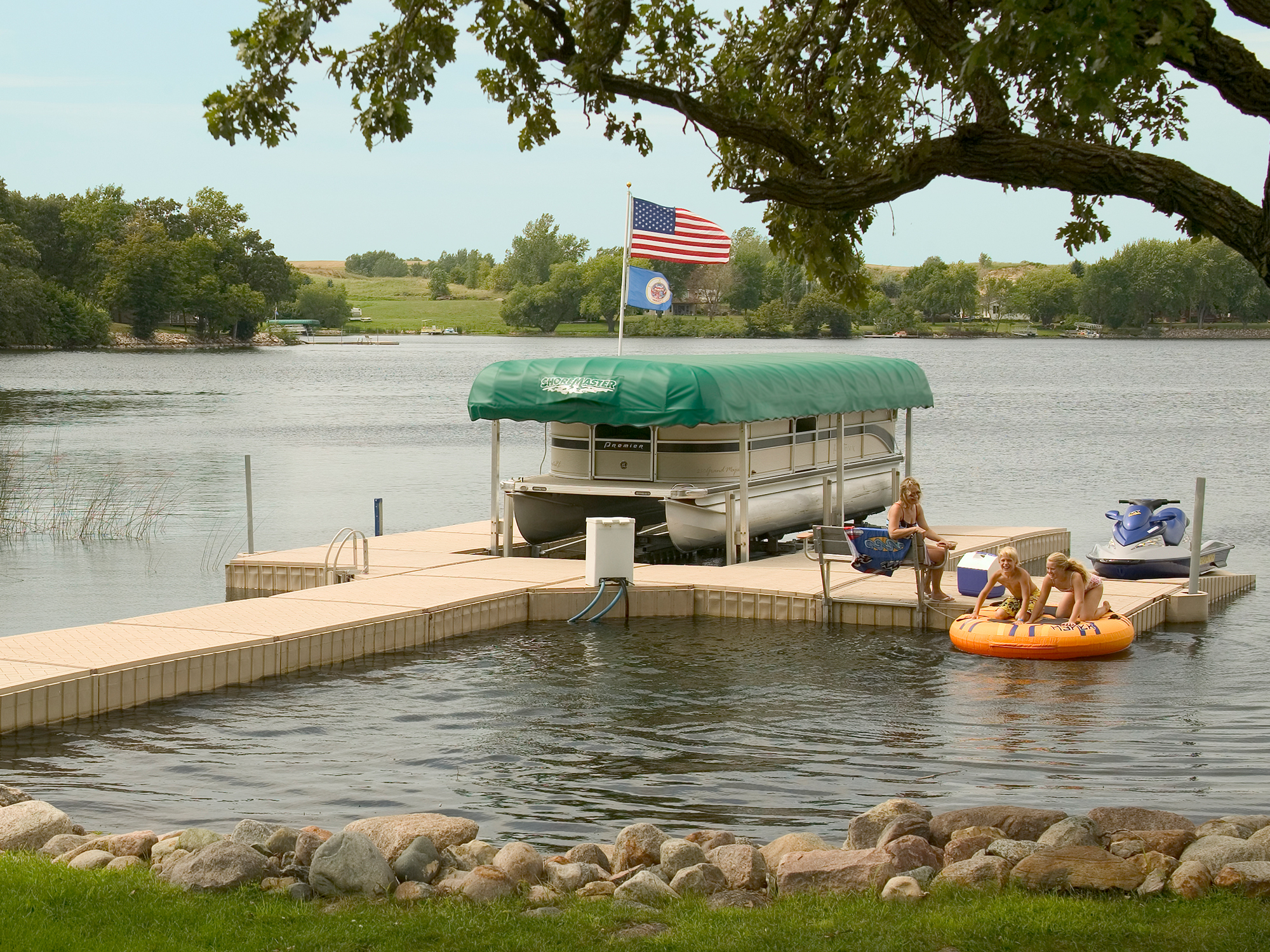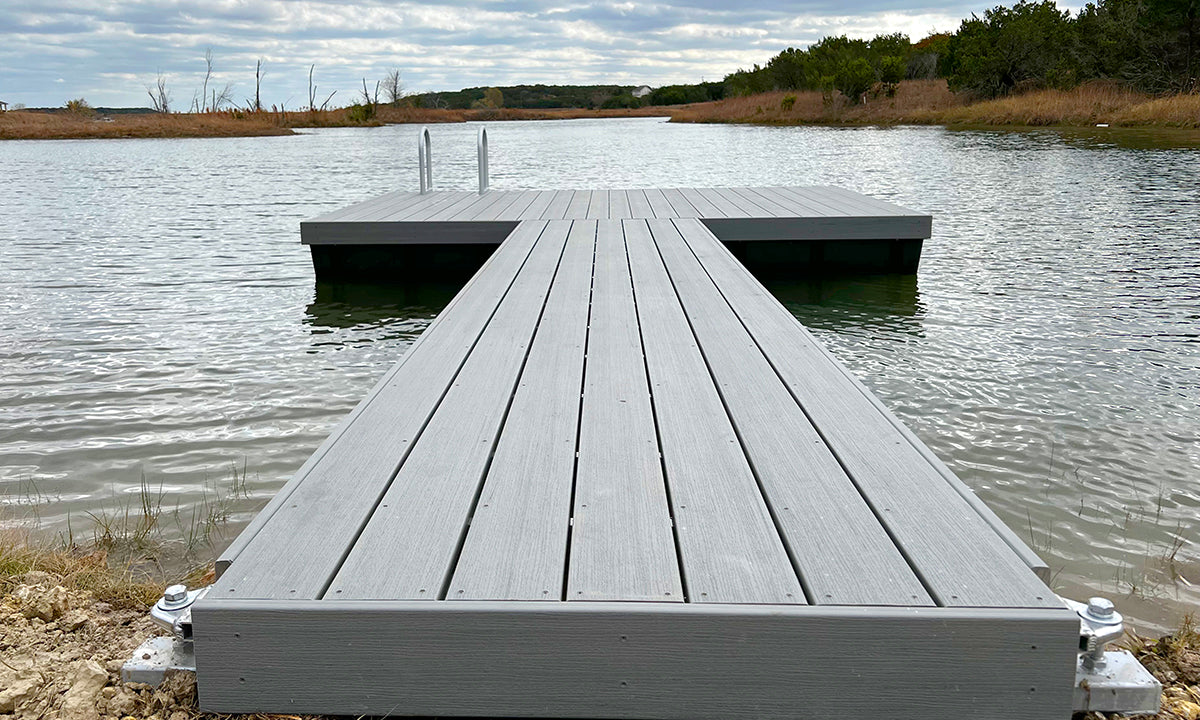The Ultimate Guide to Selecting the Best Floating Docks
Selecting the excellent floating dock needs a thorough understanding of various aspects that affect both efficiency and longevity. Elements such as dock kinds, products, and essential functions substantially influence your decision-making process.
Comprehending Floating Dock Kind
When picking a floating dock, it is vital to recognize the various types readily available, as each offers distinct functions and applications. Floating docks largely fall right into three categories: modular, stationary, and pontoon docks.
Modular docks are made up of individual areas that can be easily set up or reconfigured, making them ideal for altering water degrees and varied uses, such as leisure tasks or industrial procedures. Their flexibility permits personalization based on particular requirements.

Pontoon docks are defined by their resilient structure, often made up of multiple pontoons that supply security and support. They are specifically appropriate for bigger vessels and are frequently used in marinas or for waterside residential properties. Understanding these kinds help in choosing one of the most suitable floating dock to fulfill certain needs, making certain ideal functionality and security.
Key Materials for Durability
Choosing the appropriate materials for floating docks dramatically impacts their toughness and durability. One of the most usual materials consist of timber, plastic, metal, and composite products, each offering distinctive advantages and restrictions.
Timber, frequently preferred for its visual allure, requires regular maintenance to endure dampness and decay. Pressure-treated lumber can enhance resistance to rot, however it may still be prone to parasites and weathering.

Plastic docks, made from high-density polyethylene (HDPE), are resistant to corrosion, UV radiation, and influence, making them a prominent option for coastal settings. Their lightweight nature also facilitates very easy setup and relocation.
Metal docks, usually constructed from light weight aluminum or galvanized steel, supply extraordinary strength and resilience. They are immune to rust, especially when dealt with, but might need additional insulation to avoid warm buildup in warm climates.
Composite materials, combining timber fibers and plastics, provide the benefits of both timber and plastic, resisting moisture and fading while requiring marginal upkeep. - floating dock company
Eventually, the selection of materials ought to line up with environmental conditions, planned use, and maintenance preferences to ensure the floating dock stays useful and visually pleasing with time.
Necessary Features to Think About
While the choice of products is crucial, thinking about important attributes for floating docks is similarly important to guarantee optimum performance and customer complete satisfaction. One crucial attribute to evaluate is the dock's buoyancy ability, which determines just how much weight it can sustain without submerging. floating docks. This is crucial for suiting watercrafts, personal boat, and even leisure tasks
Additionally, transportability is a substantial consideration. Depending on your requirements, you might want a dock that is simple to dismantle and transport, specifically if you prepare to move it seasonally. Security is one more vital attribute; a well-designed floating dock should lessen activity triggered by wind and water currents, giving a safe and secure system for users.
Security functions, such as non-slip surfaces and rounded sides, are likewise important to avoid crashes, specifically in damp conditions. Additionally, consider the availability of devices, such as cleats, ladders, and bumpers, which can enhance the functionality of your dock.
Installment and Maintenance Tips
Setting up and keeping a drifting dock needs careful preparation and interest to detail to guarantee its long life and ideal performance. Begin by choosing a suitable location that lessens exposure to strong currents and waves, which can create damage. Guarantee that the water depth is sufficient for the dock's height which it is anchored securely to avoid movement.
Throughout installment, comply with the maker's standards closely, as improper assembly read this article can endanger stability. Usage high-grade materials resistant to deterioration, such as light weight aluminum or dealt with timber, to enhance durability. Regularly evaluate all parts, consisting of drifts, connectors, and anchoring systems, for indicators of damage or wear.
If your dock makes use of flotation protection devices, guarantee they stay undamaged and cost-free from punctures. By adhering to these setup and maintenance ideas, you can enjoy a reliable and practical floating dock for years to come.
Budgeting for Your Dock
Budgeting for your dock is an essential step that can considerably affect your general satisfaction and investment in a beachfront home. Developing a clear budget plan assists you navigate the numerous choices available and guarantees you make notified decisions that straighten with your monetary capabilities.
Begin by determining the dimension and design of the dock you call for, as these aspects will significantly influence the expense. Floating docks can vary significantly in rate, depending upon products, buoyancy, and attributes like accessories and ramps. Study various producers and suppliers to contrast costs and understand the marketplace worth.
In addition to initial prices, think about continuous expenses such as maintenance, insurance coverage, and prospective repair services. Designate funds for these recurring expenses to prevent surprises down the line. It's likewise prudent to allocate any needed permits or assessments, which might be needed by neighborhood policies.
Last but not least, keep in mind the prospective roi. A well-planned dock can improve your residential property's value and allure, providing a positive economic effect in the lengthy term. By budgeting efficiently, you can ensure that your dock meets your requirements without endangering your financial stability.
Conclusion
In conclusion, choosing the suitable floating dock requires a detailed evaluation of various factors, including dock types, materials, important features, and installation processes. Prioritizing resilience and compliance with local policies ultimately enhances functionality and home value. Cautious consideration of budgetary restrictions will certainly further guarantee a sound investment. By sticking to these standards, individuals can make informed choices that advertise long-lasting complete satisfaction and functionality in water environments.

While the option of products is important, considering necessary features for floating docks is just as crucial to make certain optimum performance and individual complete satisfaction.Establishing site web up and floating dock services keeping a drifting dock requires cautious preparation and attention to detail to guarantee its longevity and ideal efficiency. Floating docks can vary considerably in rate, depending on products, buoyancy, and attributes like devices and ramps.In verdict, choosing the excellent floating dock requires a thorough assessment of different variables, consisting of dock types, materials, necessary functions, and installment procedures.
Comments on “Why Your Next Investment Ought To Be with an Expert Dock Company for Top Quality Docks”